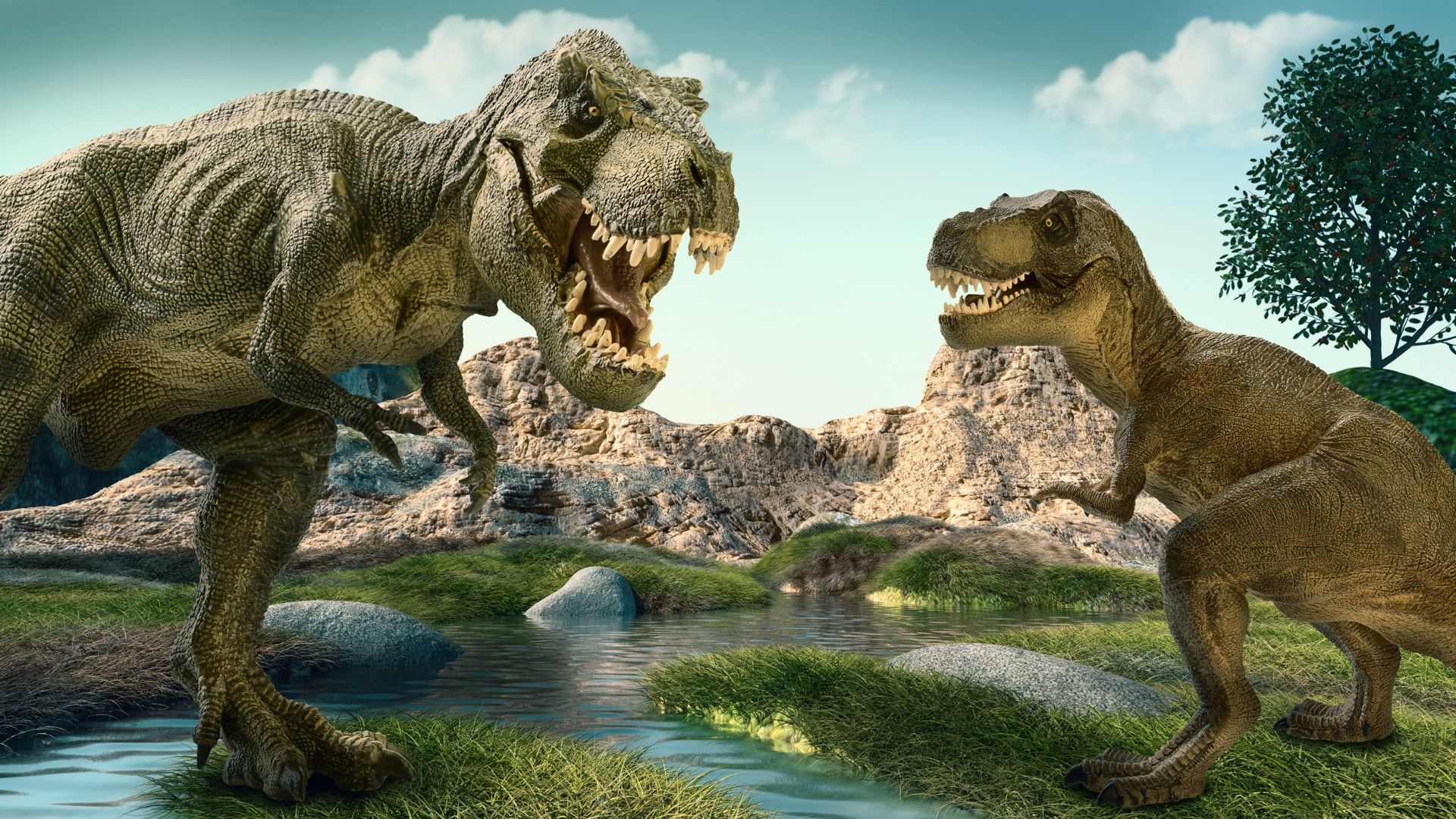Let’s learn about the different dinosaur lower classifications. There are over 700 documented species of dinosaurs; but these are the most popular types of dinosaurs discovered:
Contents
Pterodactyl
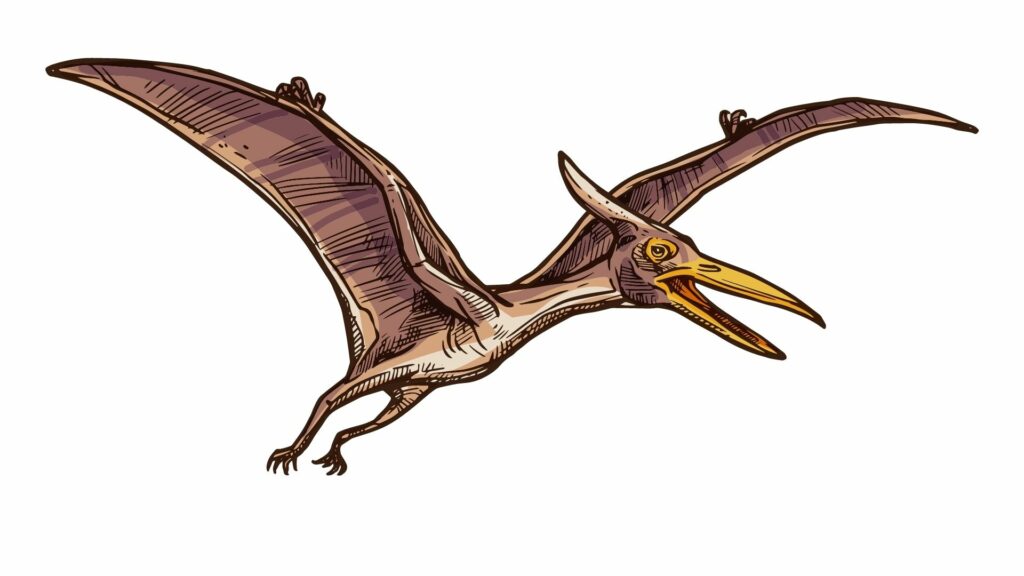
Pterodactyl is the name given to many different types of dinosaurs that had wings. However, these dinosaurs belong to a group called pterosaurs of which, the pterodactly is only one species.
- Lived: 201.3 million years ago – 136.4 million years ago (Hettangian – Valanginian)
- Scientific name: Pterodactylus (Winged finger)
- Extinction status: Extinct
- Higher classification: Euctenochasmatia
- Order: Pterosaur
Lirainosaurus
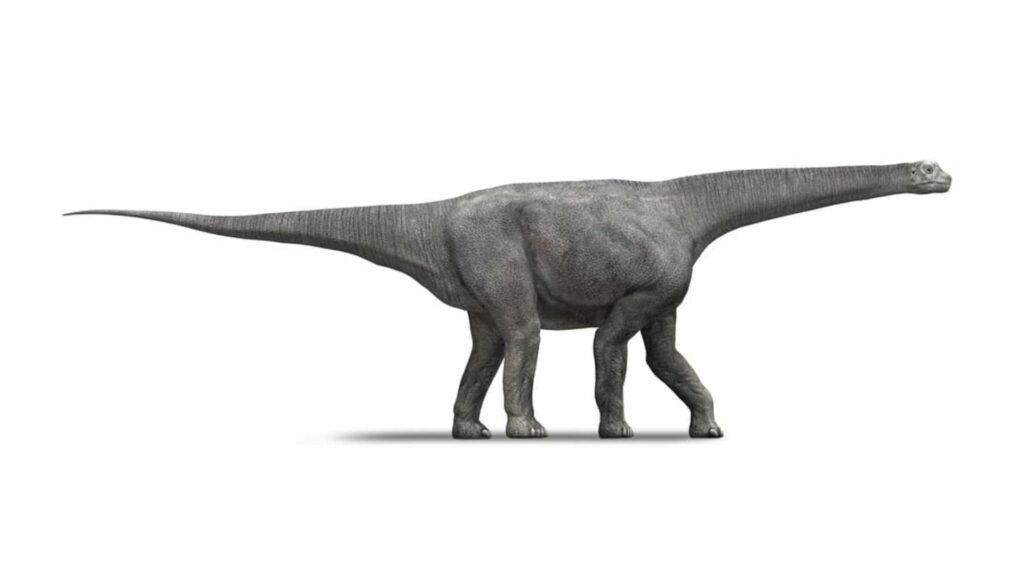
Lirainosaurus was a dinosaur that ate plans. There have been lots of fossils of Lirainosaurus found in what we know today as Spain.
- Scientific name: Lirainosaurus
- Extinction status: Extinct
- Rank: Genus
- Phylum: Chordata
- Higher classification: Titanosauridae
Iguanodon
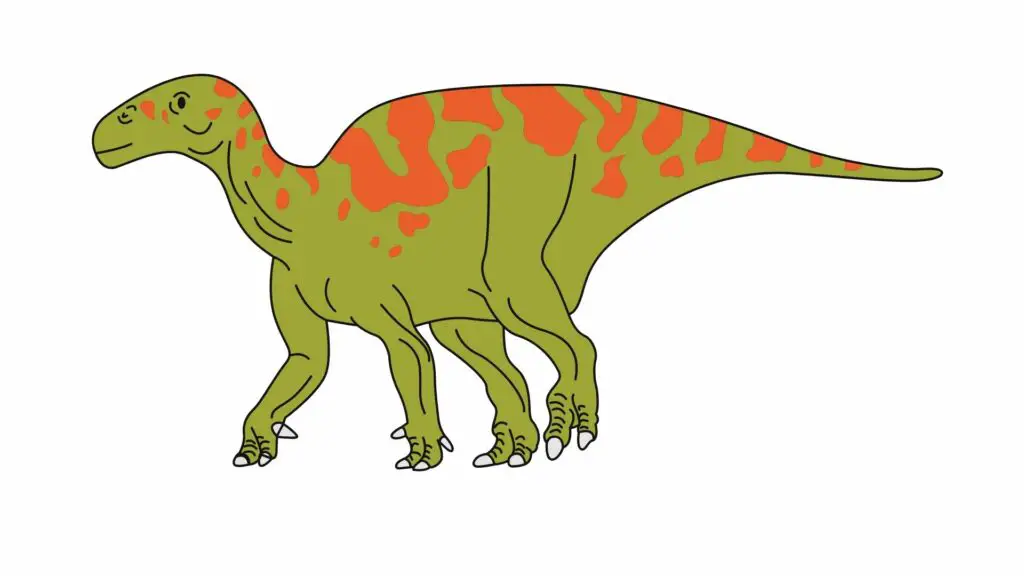
Another dinosaur that fed on plants, Iguanodon, is believed to have been able to walk on two legs as well as on all fours. Fossil remains show that Iguanodon had large thumb spikes on its hands more than likely used to fight predators.
- Lived: 157.3 million years ago – 93.9 million years ago (Kimmeridgian – Cenomanian)
- Height: 8.9 ft. (Adult)
- Mass: 8,800 – 11,000 lbs
- Length: 33 ft. (Adult)
- Extinction status: Extinct
Allosaurus
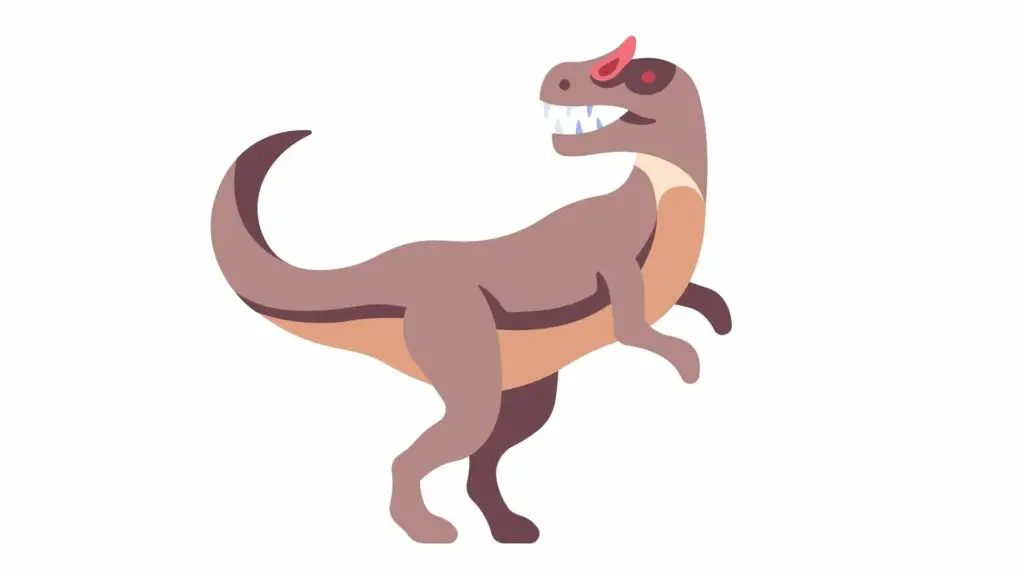
Allosaurus was a meat-eating dinosaur and is the most common dinosaur fossil found in Utah’s Cleveland-Lloyd Quarry, a site containing the densest concentration of Jurassic dinosaur bones in the world.
Lived: 163.5 million years ago – 89.3 million years ago (Late Jurassic – Turonian)
Speed: 19 – 34 mph
Extinction status: Extinct
Eats: Stegosaurus, Brachiosaurus
Weight: two tons
Brontosaurus
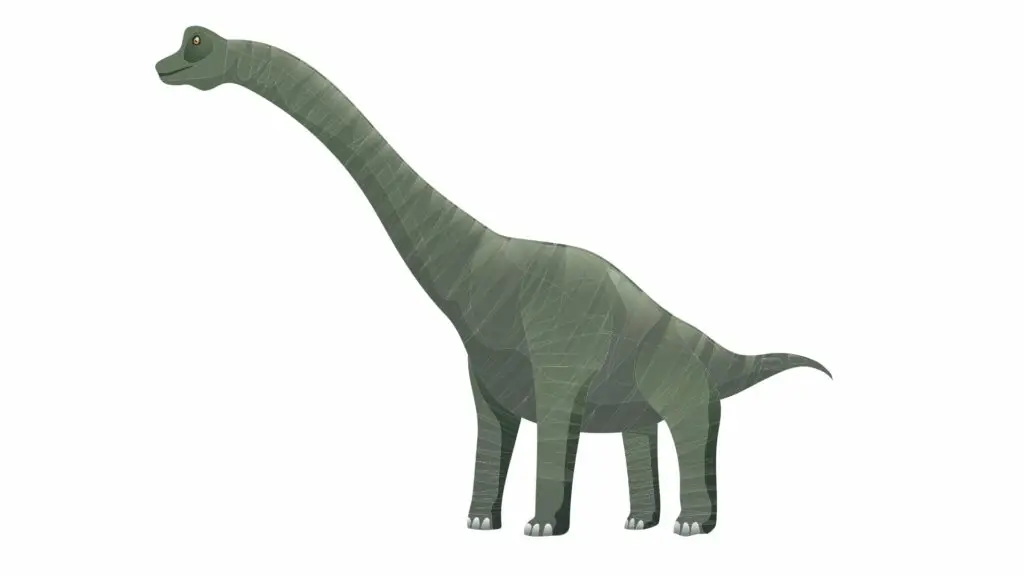
Brontosaurus was a large herbivorous sauropod dinosaur. The name comes from Greek and translates to “thunder lizard”.
- Lived: 157.3 million years ago – 145 million years ago (Kimmeridgian – Tithonian)
- Speed: 12 – 19 mph
- Higher classification: Apatosaurinae
- Scientific name: Brontosaurus (Thunder lizard)
- Family: †Diplodocidae
Gallimimus
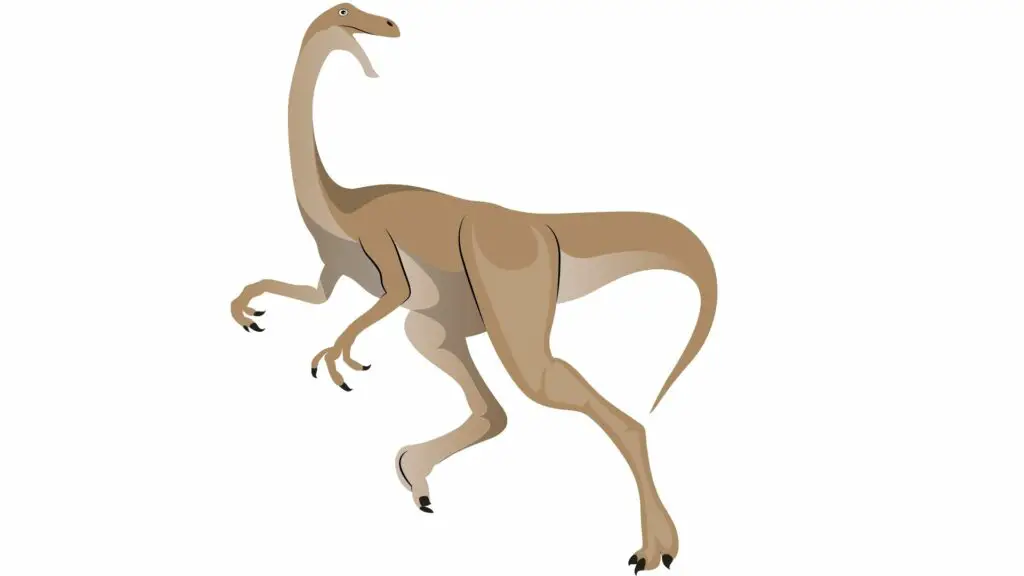
Gallimimus were fast theropod dinosaurs. Scientist believe that these types of dinosaurs moved like flightless birds (chickens).
- Height: 6.6 ft. (At the hips, Adult)
- Lived: 100.5 million years ago – 66 million years ago (Cenomanian – Maastrichtian)
- Mass: 440 lbs
- Length: 20 ft.
- Scientific name: Gallimimus (Chicken mimic)
Isanosaurus
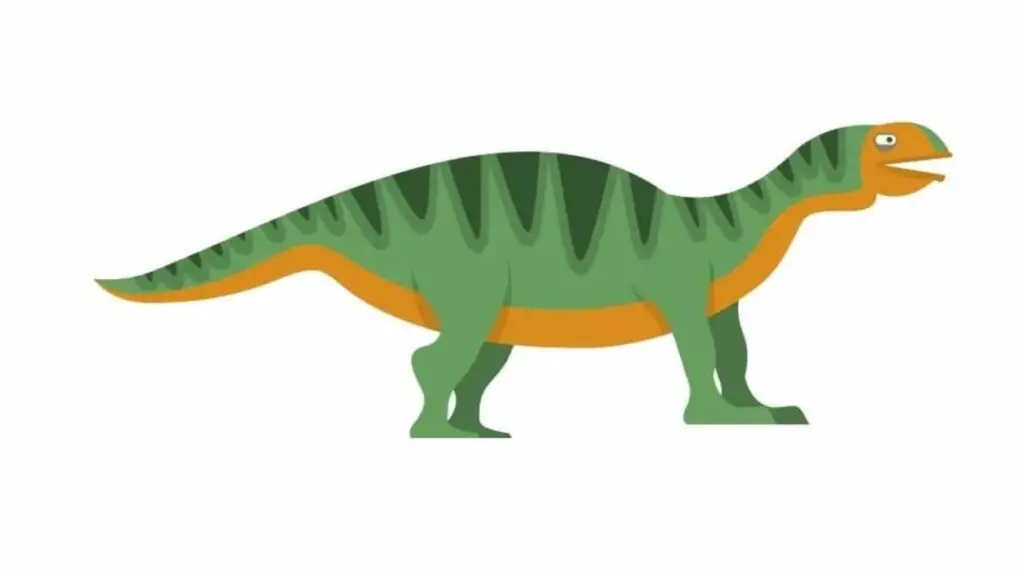
Isanosaurus was a dinosaur that ate plants. These dinosaurs inhabited Asia and many Isanosaurus fossils have been found in Phetchabun Province, Thailand.
- Mass: 4,400 – 6,600 lbs
- Lived: 228 million years ago – 201.3 million years ago (Norian – Rhaetian)
- Length: 21 ft.
- Rank: Genus
- Scientific name: Isanosaurus (Isan lizard)
- Phylum: Chordata
Mosasaurus
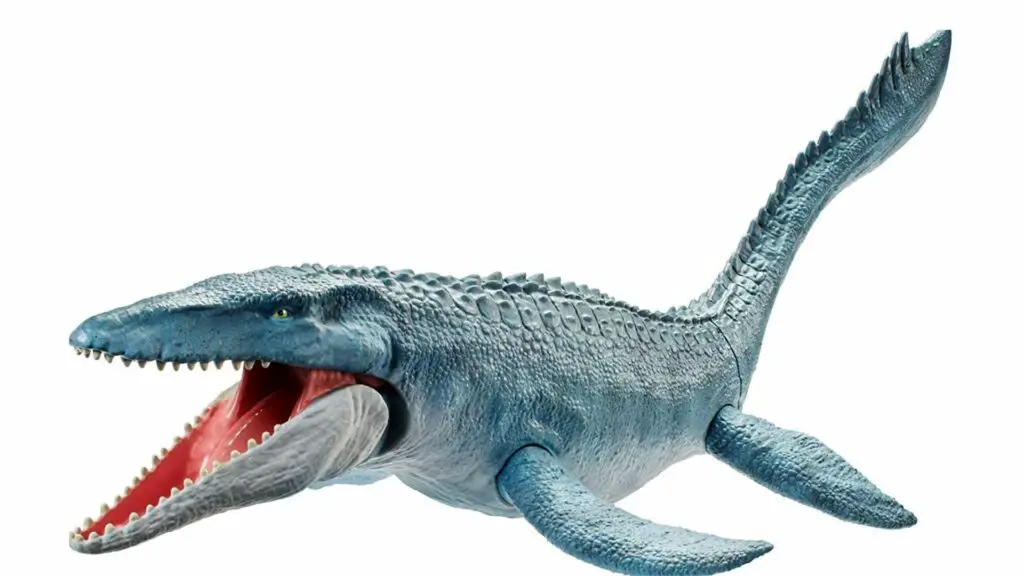
The Mosasaurus was a gigantic ocean-dwelling dinosaur. These dinosaurs were carnivores and ate anything that they could fit into their mouths.
- Length: 33 – 59 ft.
- Lived: 99.6 million years ago – 66 million years ago (Cretaceous – Paleocene)
- Extinct in: Cretaceous–Paleogene extinction event
- Mass: 30,000 lbs
- Extinction status: Extinct
Triceratops
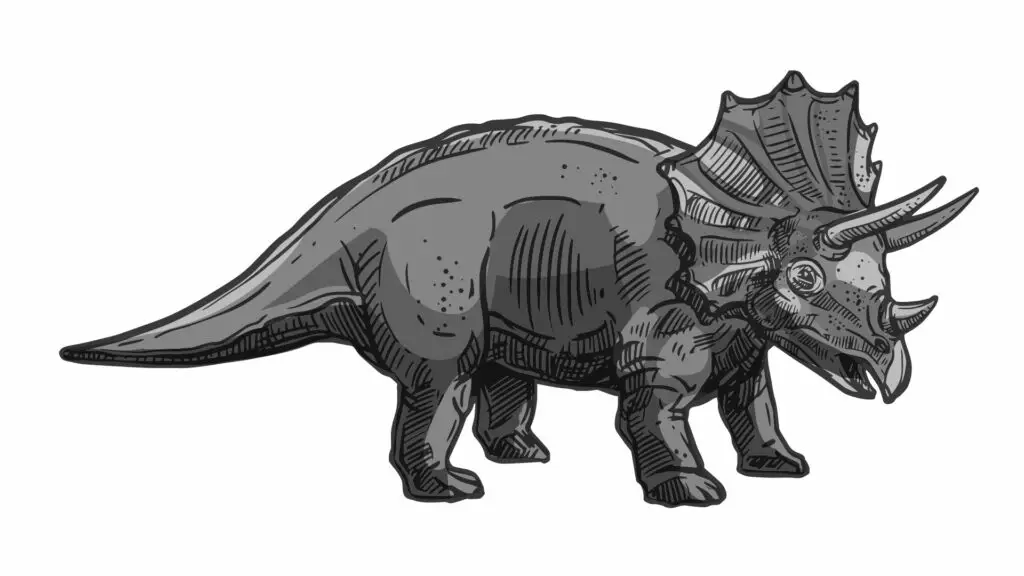
Triceratops was a large quadrupedal plant-eating dinosaur that had a frill of bone at the back of its skull, three pointed horns, and a beak-like mouth.
- Lived: 83.5 million years ago – 66 million years ago (Campanian – Maastrichtian)
- Extinct in: Cretaceous–Paleogene extinction event
- Height: 9.5 – 9.8 ft.
- Mass: 13,000 – 26,000 lbs
Tyrannosaurus Rex
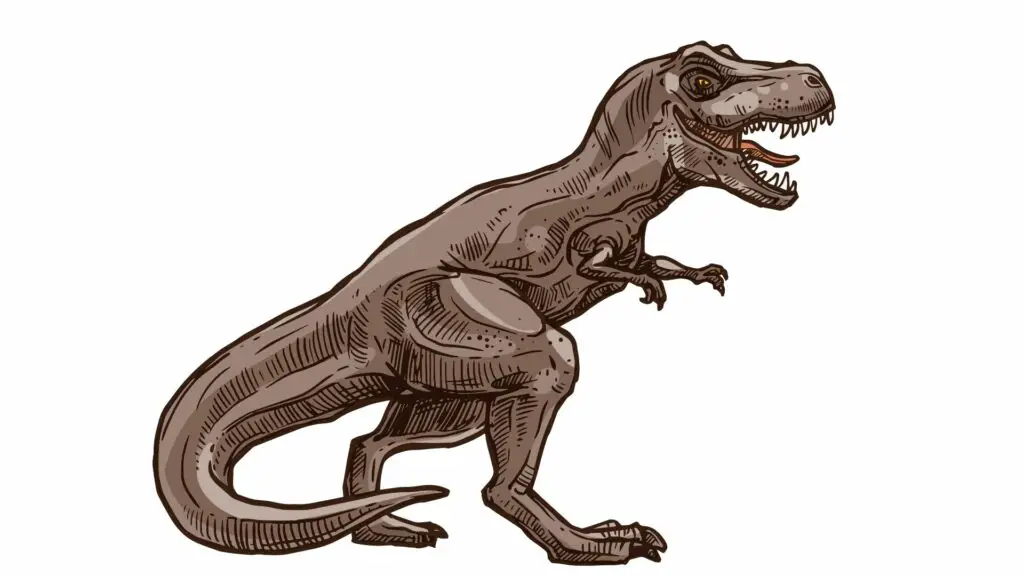
The most popular dinosaur, Tyrannosaurus Rex, lived throughout what is now western North America. These apex predators grew up to 40 feet in length and 12 feet in height. What could kill a T-Rex? Another T-Rex.
- Height: 12 – 20 ft.
- Lived: 83.6 million years ago – 66 million years ago (Cretaceous)
- Extinct in: Cretaceous–Paleogene extinction event
References/Further Readings:
- Types of Dinosaurs | American Museum of Natural History – https://www.amnh.org/dinosaurs/types-of-dinosaurs
- What Are The Main Types of Dinosaurs – Systematics of the Dinosauria – https://ucmp.berkeley.edu/diapsids/dinosy.html
- What Was The Biggest Dinosaur? – Titanosaurs: 8 of the World’s Biggest Dinosaurs | Britannica – https://www.britannica.com/list/titanosaurs-8-of-the-worlds-biggest-dinosaurs
- https://en.wikipedia.org/wiki/Dinosaur
- https://naturetingz.com/did-dinosaurs-have-scales/
